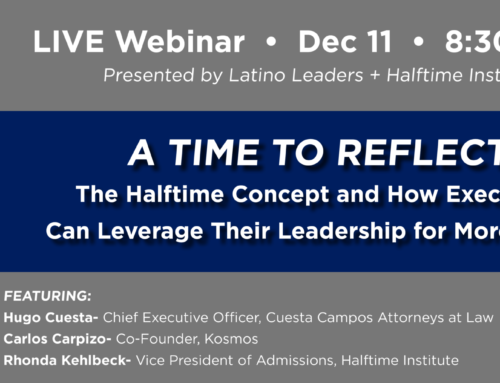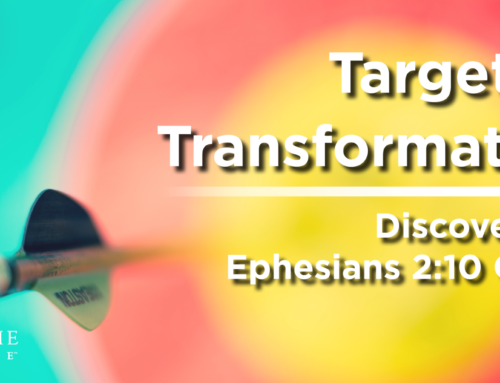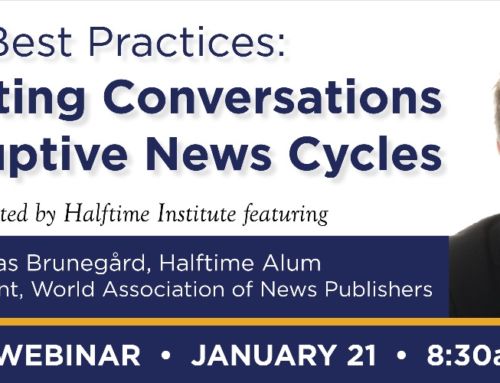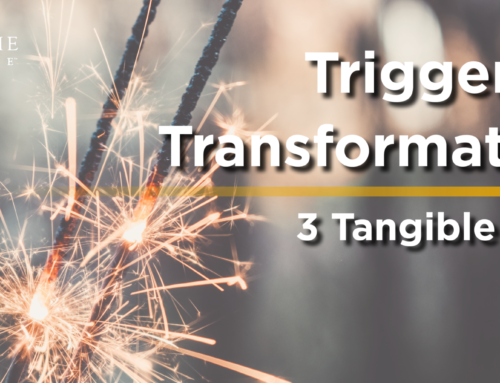We’ve been given a great gift: More time on this planet than our forefathers. Lots more time. On average we’ll live thirty years longer. The big question is: What will we do with this tremendous gift of time we’ve been given?
At the turn of the 20th Century, the average life span for men and women was around 50 years. For many of those men and women, that half century was grueling: hard physical labor was the common experience and there was very little concept of “retirement.”
Life was hard for most people, and the idea of pivoting in their fifties and doing something to leave a legacy was not even on their radar screen. Remember: this was before Social Security and 401Ks. There wasn’t a lot to fall back on, and no safety net to speak of. Higher thoughts about one’s calling and changing the world were likely hard to come by when food, clothing, and shelter were at the top of their to-do list every day.
Fast forward to 2017. Many of the diseases that devastated whole communities back in that day have been cured or can at least be managed. Most of us work at a desk somewhere looking at a computer screen, rather than doing manual labor. While it may not feel like it, we are more prosperous now than any other time in our history. An entire generation is retiring from their current jobs with enough resources and even more options about how they live the rest of their lives.
And, therein lies our dilemma. For those of us who have been achievers, we’ll probably find something to work on. Your golf game may need help, so that may be on the list, along with some travel.
But, what if there is more, a lot more that we are destined to do with our bonus years?
What would it look like to truly finish well?
What if we could end our race someday in a full gallop with a sense that we’ve given the last ounce in a cause that matters?
I’m 55 now and, I don’t know about you, but I find the idea inspiring that these next thirty years could be the most productive and impactful years of my life!
I love biking, sailing, tennis, art and great wine but those alone are not enough to really fill my life and heart with joy and meaning for the next thirty years. I know that because over the past twenty years I’ve experienced the joy of living out my calling helping people in Halftime. The problem with knowledge is that I have to do something about what I know. If I don’t, as a French poet said, “it will follow me like an accusing shadow.”
I’ve seen what God can do with dedicated people who long to figure out what Life II is going to hold for them. At the Halftime Institute, we have made it our mission to be experts on how to finish well. We’ve spent the last two decades studying the pitfalls and the deterrents to doing so. Our team has also spent a lot of time discovering the tools needed to live out Life II with the most joy, impact, and meaning.
We’ve walked alongside men and women who have gone out and changed the world in one way or another. Some become missionaries, some are entrepreneurs, some are philanthropists, and some decided to stay where they were and do things differently in their chosen field.
But they all have one thing in common: joy. They have the joy of knowing that they are not finished, that their race is still before them, and that their work matters – perhaps, more than ever.
What will you do with your 30 bonus years? Let’s talk about it. We don’t serve a lot of people – we serve a few earnest people deeply over a long period of time. If this question is really burning in your heart then just reach out and let’s talk. Click here.
Don’t go on this journey alone.
However, if you’re trying to decide, here are some ideas to consider:
Don’t rush to a solution. It is true that we’re not guaranteed tomorrow, but it is worthwhile to take the time to discover what makes you tick, what you’re passionate about, what skills and resources you’ve developed in your first half that can contribute to a meaningful second half. You don’t want to jump hastily into the first thing that comes to mind. You are building a plan for spending your years in the most fulfilling and impactful ways possible. It is going to take some consideration, planning, and evaluation.
Study people who have finished well. Take some time to learn from peers who have leveraged the last decades of their life to the fullest. We can introduce you to some of the most captivating Halftime alumni near you. Or just read books, stories and articles that help you glean best practices. Here are a couple of my favorite resources.
Bob Buford’s book Finishing Well shares the stories of 60 key leaders – many of whom you have heard of and some whom you have not – who have finished well.
Dean Niewolny’s new book, Trade Up: How to Move from Just Making Money to Making a Difference shares his personal story with transitioning from Life I to Life II along with some key questions you should be asking yourself and some of the key findings we’ve made over the last 20 years at the Halftime Institute.
Don’t go it alone: Involve those closest to you. People who finish well involve others in the journey: their spouse, children, and dearest friends. They invite these people to speak into their lives, to glean encouragement and discernment, and they live out meaningful lives in community.
Involve a coach. The rest of your life is too important not to have the help of a trusted guide who has your best interests in mind with no strings attached. Anyone who is serious about a sport has a coach to ensure they build the best possible plan. When you’re serious about using your bonus years in the most fruitful way, you enlist a coach.
Bob Buford always said, “As for me, I have decided that just about all that will be left of me when I leave this earth is what I let go of … what I was able to invest in the lives of others. The fruit of my life and my work will grow on other people’s trees.”
What fruit will you grow on other people’s trees in your second half? Take the time to answer that question, and be inspired by the stories of those who have finished well as you dive deeper into these resources.






